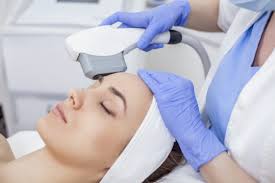Living with Menorrhagia: When to Seek Help and What to Expect?
Heavy menstrual bleeding, or menorrhagia, is a common yet often misunderstood condition affecting many women of reproductive age. While every woman’s period is unique, excessive bleeding that interferes with daily life should not be ignored.
For some, it means soaking through sanitary products every hour, passing large clots, or experiencing fatigue due to anaemia. If you’ve ever wondered whether your menstrual flow is normal or something more serious, understanding menorrhagia is the first step toward effective management.
What Is Menorrhagia?
Menorrhagia refers to abnormally heavy or prolonged menstrual bleeding. While it’s common to have some variation in menstrual cycles, menorrhagia is characterized by:
- Bleeding that lasts more than seven days
- Soaking through one or more sanitary pads or tampons every hour for several consecutive hours
- Needing to use double sanitary protection to control your flow
- Waking up at night to change protection
- Passing blood clots larger than a quarter
- Fatigue, shortness of breath, or signs of anemia
Living with these symptoms can significantly affect a woman’s physical, emotional, and social well-being.
Common Causes of Menorrhagia
Menorrhagia can occur due to various underlying conditions, including:
- Hormonal imbalance: An imbalance between estrogen and progesterone can lead to a thickened uterine lining and heavier bleeding.
- Uterine fibroids or polyps: Non-cancerous growths in the uterus can disrupt normal menstrual function.
- Adenomyosis: This condition occurs when endometrial tissue grows into the uterine wall.
- Bleeding disorders: Some women have inherited conditions that impair blood clotting.
- Infections, medications, or intrauterine devices (IUDs): These can also contribute to excessive bleeding.
Because there are so many potential causes, it’s crucial to consult a specialist for a proper diagnosis.
When to Seek Help?
Many women delay seeking medical attention, thinking their heavy periods are normal or something they just have to deal with. However, you should see a doctor if:
- You experience bleeding between periods or after menopause
- You feel extremely tired or dizzy during your period
- Your menstrual cycle interferes with your daily routine
- You suspect your bleeding is affecting your fertility
Timely intervention can not only provide relief but also help identify serious conditions like endometrial hyperplasia or cancer early.
What to Expect During Diagnosis?
When you consult a gynecologist for menorrhagia, you’ll likely undergo:
- Medical history review: You’ll be asked about your menstrual cycle, general health, and any medications you’re taking.
- Physical examination: A pelvic exam may be conducted to check for any abnormalities.
- Lab tests: Blood tests can assess anemia and thyroid function or check for clotting disorders.
- Imaging tests: Ultrasounds or MRI scans help visualize the uterus and detect fibroids or other abnormalities.
- Endometrial biopsy: In some cases, a sample of the uterine lining is taken to rule out cancer or other conditions.
This comprehensive approach helps tailor the best treatment plan for your specific needs.
Treatment Options
Menorrhagia treatment depends on its cause, severity, and your personal preferences, especially regarding future fertility. Some common treatments include:
- Medication: Hormonal therapies like oral contraceptives or progestins can regulate cycles. Nonsteroidal anti-inflammatory drugs (NSAIDs) may reduce blood flow and relieve pain.
- Iron supplements: To manage or prevent anemia caused by blood loss.
- Minimally invasive procedures: These include endometrial ablation (removal of the uterine lining) or hysteroscopic removal of fibroids or polyps.
- Surgical options: In more severe cases or when other treatments fail, a hysterectomy may be recommended.
Expert Care in Noida
If you are living in Noida and struggling with heavy menstrual bleeding, expert help is just around the corner.
Dr. Aprajita Srivastava is a highly regarded gynecologist, reproductive endocrinologist, and fertility specialist located in Noida. With her compassionate approach and deep clinical expertise, Dr. Srivastava has helped countless women manage menorrhagia effectively, improving their quality of life and reproductive health.
She offers a comprehensive evaluation and personalized treatment plans, ensuring patients receive the most appropriate and advanced care options available today.
For those seeking Menorrhagia Treatment In Noida, Dr. Aprajita Srivastava’s clinic provides a supportive and private environment where women can openly discuss their symptoms and concerns.
Moving Forward with Confidence
Living with menorrhagia doesn’t mean you have to suffer in silence. With proper diagnosis and care, most women can find relief and regain control over their lives. If you or someone you know is struggling with symptoms of heavy bleeding, don’t delay in seeking medical attention.
Dr. Aprajita Srivastava and her team are dedicated to empowering women with knowledge, support, and top-tier medical care. Whether you’re looking for routine advice or Menorrhagia Treatment In Noida, trust that you’re in capable and caring hands.
Dr. Aprajita Srivastava
Address – Ofc No 143, 1st Floor, QURE CLINIC, Cleo St, Sector 121, Noida, Uttar Pradesh 201301
Email – contact@draprajitasrivastava.in
Phone – 9599244575
Google Map Location Listing – https://maps.app.goo.gl/UpEeKN9QswpunDx49












